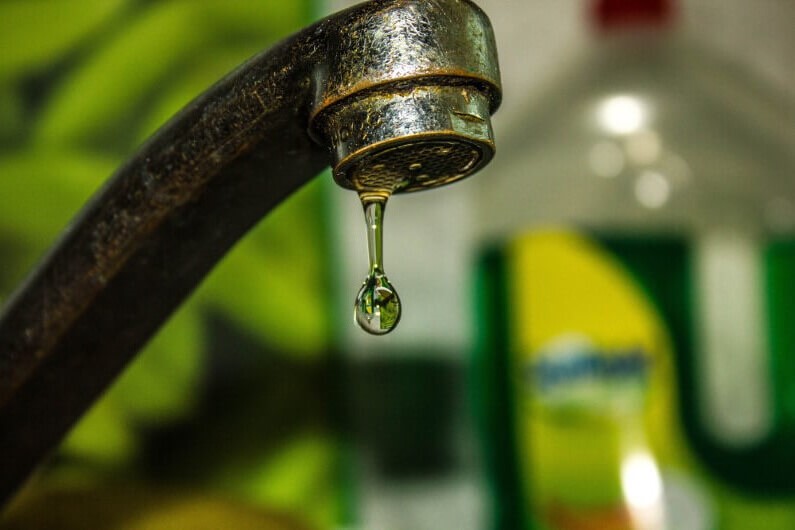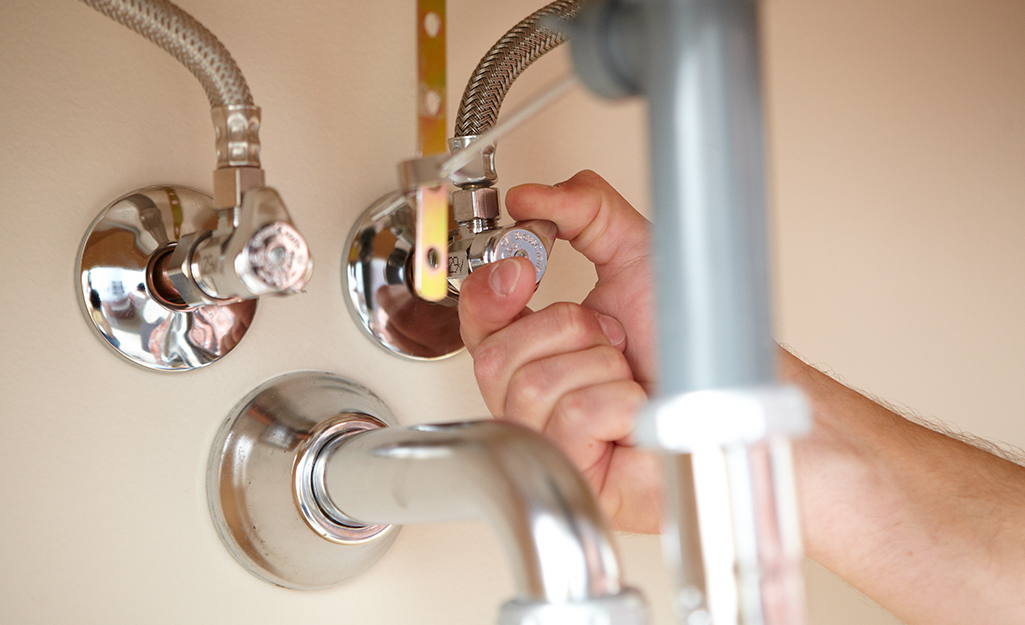Exploring the Relevance of Correcting a Dripping Faucet
Exploring the Relevance of Correcting a Dripping Faucet
Blog Article
Just about every person seems to have their own opinion about Why Are My Faucets Dripping (And Can I Fix It Myself)?.

Dripping taps could seem like a minor inconvenience, but their effect surpasses simply the inconvenience of the audio. From wasting water to incurring unnecessary economic prices and wellness threats, disregarding a trickling faucet can bring about various consequences. In this write-up, we'll look into why it's critical to address this common house problem quickly and effectively.
Wastage of Water
Ecological Impact
Leaking taps add considerably to water waste. According to the Epa (EPA), a single tap trickling at one drip per secondly can squander more than 3,000 gallons of water annually. This not just stress water resources but also affects ecological communities and wildlife dependent on them.
Financial Costs
Increased Water Bills
Beyond the environmental impact, dripping taps can blow up water costs substantially. The built up waste in time equates right into higher utility expenditures, which can have been stayed clear of with prompt repair services.
Prospective Building Damages
Furthermore, prolonged trickling can cause damage to fixtures and surface areas bordering the faucet. Water buildup can cause discoloration, rust, and also structural concerns if left ignored, causing added repair service costs.
Wellness Worries
Mold and Mold Development
The continuous existence of dampness from a leaking tap produces an excellent environment for mold and mildew and mold growth. These fungis not only endanger interior air high quality however additionally pose health and wellness threats, specifically for individuals with breathing problems or allergic reactions.
Waterborne Illness
Stagnant water in trickling taps can come to be a breeding place for germs and other virus, raising the danger of waterborne illness. Impurities such as Legionella germs grow in stagnant water, potentially bring about severe ailments when consumed or breathed in.
Do it yourself vs. Professional Fixing
Pros and Cons of Do It Yourself Repair
While some may try to fix a trickling tap themselves, DIY repairs come with their own set of obstacles. Without appropriate knowledge and tools, do it yourself efforts can exacerbate the issue or result in incomplete repair services, extending the issue.
Advantages of Employing an Expert Plumber
Working with a specialist plumber makes sure that the underlying root cause of the dripping faucet is resolved properly. Plumbers have the knowledge and equipment to diagnose and fix tap concerns successfully, saving time and decreasing the danger of additional damages.
Step-by-Step Overview to Repairing a Dripping Faucet
Devices Called for
Prior to attempting to take care of a trickling faucet, collect the needed devices, consisting of an adjustable wrench, screwdrivers, replacement parts (such as washing machines or cartridges), and plumber's tape.
Usual Tap Issues and Their Solutions
Identify the type of faucet and the particular concern creating the drip. Typical troubles consist of damaged washers, corroded shutoff seats, or faulty O-rings. Refer to manufacturer instructions or on the internet tutorials for detailed assistance on repair services.
Safety nets
Routine Maintenance Tips
To stop dripping faucets, carry out routine maintenance such as cleaning up aerators, checking for leaks, and changing worn-out parts quickly. In addition, take into consideration installing water-saving gadgets or updating to a lot more efficient components.
Value of Prompt Repair Works
Addressing leaking taps as soon as they're seen avoids further water waste and potential damage, ultimately conserving both water and money in the future.
Effect On Building Worth
Assumption of Well-Maintained Home
Preserving a home in good condition, consisting of resolving upkeep issues like dripping taps, boosts its viewed value and value among prospective purchasers or renters.
Impact on Resale Value
Characteristics with properly maintained plumbing components, including faucets, command higher resale values in the real estate market. Resolving dripping faucets can add to a favorable impression during property evaluations and arrangements.
Environmental Duty
Private Payment to Preservation
Taking duty for taking care of trickling faucets straightens with broader efforts towards water preservation and ecological sustainability. Every individual's activities collectively make a substantial effect on maintaining priceless sources.
Sustainable Living Practices
By prioritizing punctual fixings and embracing water-saving routines, individuals contribute to lasting living practices that profit both present and future generations.
Final thought
Dealing with a leaking tap exceeds simple comfort; it's an important action towards saving water, decreasing economic expenses, and securing wellness and residential property. Whether via do it yourself fixings or expert help, acting to take care of trickling taps is a little yet impactful method to promote responsible stewardship of resources and add to a much healthier, extra sustainable future.
How to Fix a Leaky Faucet: Step-by-Step Repair Guide
A leaky faucet may seem like a simple annoyance, but if it's not fixed promptly, that leak could cost hundreds to potentially thousands. From water damage to mold, mildew, and high water bills, even a tiny leak can be catastrophic if left unattended. Damage like this can even affect the overall value of your home, so it's important to take the right approach for leaky faucet repair. You may need the help of a plumber in some cases, but we've got a few tips you can try on how to fix a leaky faucet before calling the pros.
Four Faucet Types
When you're learning how to fix a leaky faucet, the first step is knowing what kind of faucet you're working with! There are four common types.
Cartridge Faucets
Cartridge faucets come in one- or two-handled varieties. In one-handled cartridge faucets, hot and cold water combines in a single cartridge. In the two-handled versions, hot and cold water are controlled separately and mixed in the faucet.
Ball Faucets
Ball faucets have a single lever you push up and down to adjust the pressure and rotate to change the temperature. A slotted metal ball controls the amount of water allowed into the spout.
Compression Washer Faucets
They're the oldest type of faucet, but they're still used in many homes — especially older ones. Compression faucets have two separate handles that, when turned, raise or lower the washer that seals a water valve. This valve stops water from flowing through the faucet when it is turned off.
Disc Faucets
Disc faucets rarely need to be repaired due to their maintenance-free design. The water flow is controlled by two discs — the upper one raises and lowers against a fixed lower disc, creating a watertight seal. If your disc faucet starts leaking, you may need to replace the seals or clean residue buildup from the inlets.
Fixing a Leaky Faucet
Step 1: Turn Off the Water
Whether you're learning how to fix a leaky bathtub faucet or how to fix a leaky kitchen faucet, always turn off the water supply to your working area when you're fixing a leak. The last thing you want is a flood added to your list of things to fix.
Look for the shutoff valves below your sink or around the tub and turn them clockwise to stop the water flow. If your faucet doesn't have shutoff valves, you may need to turn off the water for the whole house. Check to make sure it's off by turning the faucet on. If nothing comes out, you're ready to start the repair.
Step 2: Take Apart the Faucet
How you disassemble your faucet depends on the type of fixture you have. You can use a flathead screwdriver to remove the caps on top of the handle or handles for cartridge and compression faucets. Inside, you should see handle screws. Unscrew these with a screwdriver to remove the handle.
Disc- and ball-style faucets will typically have an inlet screw near the handle, and removing that will reveal the interior of the faucet.
Detach the Valve Stem
For cartridge- and compression-style faucets, you'll see the inner valve stem or cartridge once you remove the faucet handles. If you have a compression faucet, unscrew the brass valve stem. If you have a cartridge faucet, pull out the cartridge. If your cartridge has been in place for a while, it may require some tools or extra force to remove it due to mineral deposits.
Examine and Replace Parts
Once you've removed the parts, check them out to confirm what needs to be replaced. You may see corroded rubber washers, O-rings, stems, or cartridges. On a ball-style faucet, check the seats and springs for damage.
If you need to repair a leaky disc faucet, check the inlet and seals on the lower disc.
Once you determine what parts must be replaced, visit your local hardware store. Bring the damaged parts with you to ensure you can purchase the correct components to replace them.
Clean Valves and Faucet Cavity
If you've removed a stem or cartridge, you may notice mineral buildup in the faucet's threads. Use white vinegar to clean the valve seat by soaking it for a few minutes, then scrub it away with a soft toothbrush and rinse with warm water. You can also clean the interior of the faucet in the same way.
Reassemble the Faucet
Once your faucet is cleaned and the required parts have been replaced, it's time to reassemble it. Put the pieces back together and slowly turn the water supply back on. Doing this slowly is crucial because too much initial water pressure can damage the new hardware you've just installed.
https://homewarranty.firstam.com/blog/how-to-fix-leaky-faucet

We were shown that report on What Causes Leaky Faucets & How To Fix Them through a friend on our other web page. Are you aware of someone else who is involved in the niche? Be sure share it. Thank-you for taking the time to read it.
Report this page